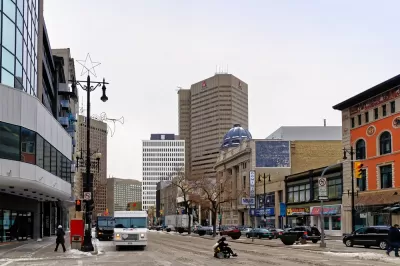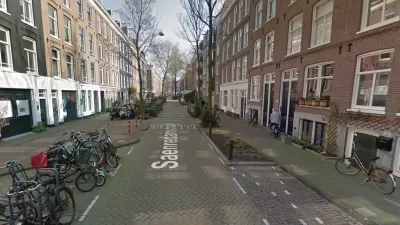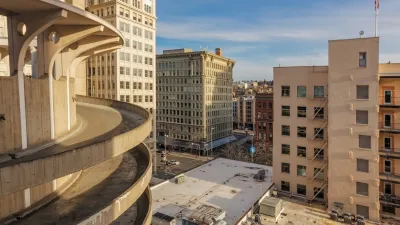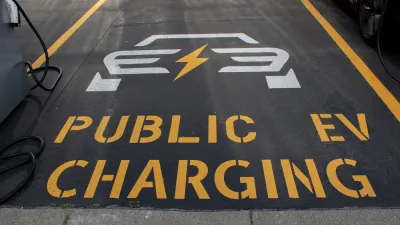Increasing the price of parking is among the initiatives Winnipeg is pursuing in an effort to make its downtown more livable.

Support from the Winnipeg Chamber of Commerce and business community for increasing parking rates and charging for parking on weeknights are among the changes being made to make downtown Winnipeg more vibrant. The city is seeking to encourage longer term parkers to do so in municipal ramps, freeing up on-street spaces for people doing shorter trips to shop or dine.
"Parking should never be free and never be without a time limit," says urban planner Brent Toderian. "It’s not just about revenue, it’s about supporting your downtown retailers and your traffic situation."
The two initiatives in Winnipeg are part of a larger puzzle of creating more vibrant downtowns, including improving and encouraging transit, little things like back-in angled parking, and getting more people walking and biking. Architect Johanna Hurme, chairwoman of the Winnipeg Chamber of Commerce, cites time spent in Helsinki when she was younger as a guide to her efforts in Winnipeg.
"Helsinki is twice as dense and very walkable," she says. "You’re saving so much on infrastructure because you have so much less roadway and have to maintain so much less."
Winnipeg's next issue is improving transit, which many feel is not reliable enough. Among the options being considered are a bus fare increase, and also a gas tax increase. Coffee shop owner Lyle Stafford is hopeful for these and other policy changes that will bring more pedestrians and cyclists downtown, as he sees them as having a direct positive impact on his and other businesses.
FULL STORY: Applying the Parking Brakes

Trump Administration Could Effectively End Housing Voucher Program
Federal officials are eyeing major cuts to the Section 8 program that helps millions of low-income households pay rent.

Planetizen Federal Action Tracker
A weekly monitor of how Trump’s orders and actions are impacting planners and planning in America.

The 120 Year Old Tiny Home Villages That Sheltered San Francisco’s Earthquake Refugees
More than a century ago, San Francisco mobilized to house thousands of residents displaced by the 1906 earthquake. Could their strategy offer a model for the present?

HSR Reaches Key Settlement in Northern California City
The state’s high-speed rail authority reached an agreement with Millbrae, a key city on the train’s proposed route to San Francisco.

Washington State Legislature Passes Parking Reform Bill
A bill that would limit parking requirements for new developments is headed to the governor’s desk.

Missouri Law Would Ban Protections for Housing Voucher Users
A state law seeks to overturn source-of-income discrimination bans passed by several Missouri cities.
Urban Design for Planners 1: Software Tools
This six-course series explores essential urban design concepts using open source software and equips planners with the tools they need to participate fully in the urban design process.
Planning for Universal Design
Learn the tools for implementing Universal Design in planning regulations.
Ada County Highway District
Clanton & Associates, Inc.
Jessamine County Fiscal Court
Institute for Housing and Urban Development Studies (IHS)
City of Grandview
Harvard GSD Executive Education
Toledo-Lucas County Plan Commissions
Salt Lake City
NYU Wagner Graduate School of Public Service





























